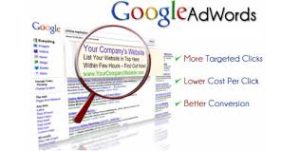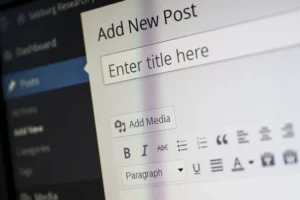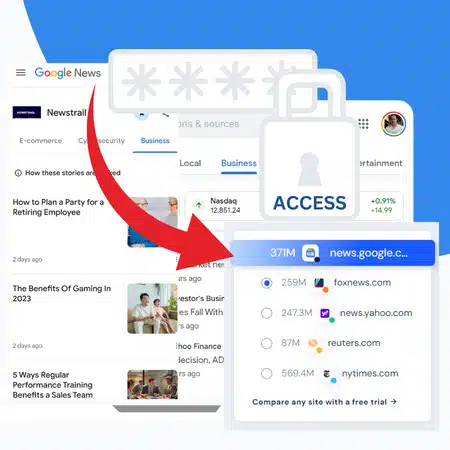It’s simple, keywords activate your ads. The knock-on of that, is that you need to make sure that you create and maintain an excellent keyword list. This is imperative if you want to make sure that you get most out of the money spend on your paid search. That is since you want to make sure that you follow the golden rule, that the amount you spend per click should always be less than the total profit earned per click.
Now we need to move back even more and say that to build an effective keyword list, you need to conduct keyword research. Keyword research is simply the practice of creating a keyword list which is based on the frequency at which consumers search those words and/or phrases.
It is important to conduct your keyword research since basically keywords forms the essence of your AdWord campaign. This means that the keywords will impact your visibility in search results, but it can also impact your PPC budget.
Setting up or reviewing a keyword list should therefore be robust. Keeping in mind that using a long-tail keyword strategy of selecting niche keywords might yield better results and be more cost effective. That is since to work out your PPC costs, companies like Google and Bing will charge you an auction rate for your keywords. This means that broader, and those that will attract far more searches, will be pricey as the cost per click will normally be high. Also think of the drawback of such an approach, that your chances of a conversion will be lower. Applying a narrow approach on the other hand will not only cost less, but the chances for conversion will be higher. For example, instead of selecting ‘table’, ‘antique French table’ might be more effective.
There is help to aid you with your keyword research, but even though there are many non-Google keyword research tools accessible, start with the tools that Google has to offer. There are three tools you should focus on:
- On-site search. Using Google Analytics that will provide you with a report, you can gain insights to aid you to conduct your keyword research process. The terms your browsers use to find services and products with on-site search box will match those that people use to search on Google.
- Google keyword planner. Google’s keyword research tool is helpful since it provides good data on the popularity of keywords from Google itself. More so, this tool gives keyword suggestions, allows you to organise keywords into ad groups and forecast visibility based on different bids. Also part of Google keyword planner, is Google Trends that is an alternative with a higher-level view of the data.
- Search terms reports. Adwords also provides a search term report that lists the search queries that initiated your existing keyword lists further, as well as determine new keyword prospects.
Some tips for best results:
Your budget
You should think about your budget in terms of search volume and CPC when setting up your keywords. That is since you need to ensure that it remains within budget.
Look at what your competitors are doing
What you can do is to make use of competitor review tools to analyse how rival businesses are bidding on keywords, as well as to gage what alternative keywords you can make use of.
Rather select quality of quantity
When you a setting up a keyword list, it does not have to be long. In fact, a stronger, relevant keyword list will be more effective than a longer generic list.
Make your selection by thinking like a consumer
Careful of your own jargons, but rather think who is your client and what is the words and terms they would be using when doing a search and make use of them.
The next step would be to pick the correct match types
Now, match types, also known as keyword matching options, allows you to select who will be seeing your ads, which is based on the similarity of users search queries to your selected keyword. These are used as targeting options for search ads in AdWords. AdWords allows you to select from five different match type options, namely exact match, phrase match, broad match, Broad match modifier and negative match. All of these setting have their own issues and each will allow you a different level of control. For example, exact match will offer the most control, followed by phrase match, modified broad match and broad match. Therefore, ideally you want to set your account to exact match, but it will not be possible. Therefore, you will need to use phrase and modified broad match.
Exact match setting is that your ads will only show if the keywords matches exactly with the query. There might be an exception, as Google allows for misspelling, if the query is a very near match.
Phrase match is similar to exact match, but this setting allows that additional words can be added around the keywords.
Broad match will allow for a wider range of queries. Here a broad match will include synonyms, where the word order might differ, where long-tail queries might match the subject matter, as well as incorrect spelling. This setting should ideally be avoided as it would appear for low-value and irrelevant queries. Also if you are a brand, it will not be an effective setting, if fact it will only attract unwanted traffic.
Broad match modifier is a combination between broad and phrase match settings. There is a bigger target control than broad match as your ad will not display when users are searching for synonyms or related search. But also unlike that of phrase match, it will show ads when users search for words in a different order.
Negative match allows for the stop ads triggering feature. This type of keyword will prevents an ad from being triggered by a certain word or phrase, thereby keeping the search more specific.
Dos and Don’ts for brand keywords
When Google ended the protection of brand keywords in 2008, meant that competitors could bid on competitors’ branded terms, if it did not contain a trademark. Still, it could mean that you could have the ads of your competitors on your website. So ideally you need to protect your brand in search. Bidding on your own brand keywords aren’t the answer, rather the brand will most likely appear on the #1 spot, with no paid search competition. But sometimes you will need to apply PPC tactics to ensure that #1 spot.
To conclude, constructing an effective keyword list will be time consuming, and involve updating. But if you want your campaign to win, then you need to make sure you have the basics right. To guide you, you can consult with the experts. One marketing agency that does exactly these kind of things is Adriaanbrits.com. This company specializes on marketing campaign management on Google AdWords, but also Bing Ads, Linked-In and Facebook Ads.







